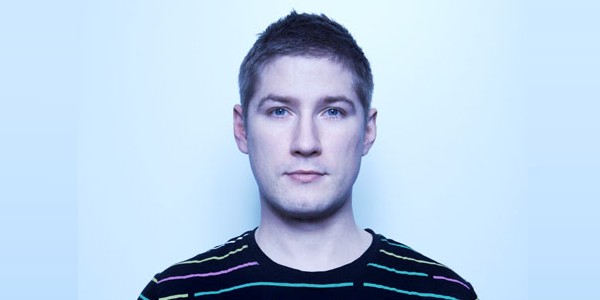By all accounts, any artist that possesses the Dahlbäck name ought rightly to be considered electronic music royalty. For the Swedish based Jesper Erik Mathias Dahlbäck is a true genius of the scene and an incredibly genial and pleasant bloke to boot. Since 1994, he has worked tirelessly to deliver the finest and most original of sounds – and often prolifically – without falling into the common trap of delivering quantity over quality. Having said that, his association with that other Swede – Adam Beyer – hasn’t hurt his career. Rather, it has placed Stockholm firmly on the EDM map and today they are perhaps the most commonly recognised names that hail from the region. And for good reason – his skills in the studio are second to none; as is his ability to create warm and fluid melodies that seemingly transcend genre boundaries, while staying true to his techno roots. His ability on stage isn’t half bad either.
He explains where the initial love of music came from, “Basically I always thought I was going to be some sort of rocket scientist or engineer! I never thought I was going to work with music. But then in the higher, later grades of school, I began to appreciate music more and more and I discovered early synth music in the late 80s and then hip hop. Even towards the end of the 1980s it was the acid house sound that really caught me getting into the music. Later on in the early 90s, I was trying to collect some money and was trying to research how to do house music!”
Of course technologically, the mid 1980s and 90s was an era completely different to that of today – there was no real soft music industry – no computer software, no internet and no laptops. It was all vinyl and racked hardware. Now some purists might hark to those days with an emotional fondness, however the power and reach that music has today makes it a far more powerful medium than ever. And Jesper agrees. “It’s true, there was no information, there was no internet so you needed to ask people what you needed to make this stuff – that sort of thing! You look back on how far things have come and it becomes interesting really; some much has changed over the years and for the better I think.”
If we backtrack for a moment through, it was around 1993 that he met Adam Beyer and Joel Mull through mutual friends and they all discovered what Jesper terms, “This new techno music,” claiming that it was going on all around him at that time. “Once on the train down to Berlin we started to immediately plan how to build up a studio together with all of our equipment! Since then, I never really left the studio.” Who would have thought that a chance meeting on the way to the Love Parade would have spawned such a successful career? And to this day, he’s never looked back.
“I think the fact that things changed so much was a really good thing for music actually. It’s never good for musicians to get too comfortable. It’s like the mission is to try newer things. Even if it’s a matter of mixing two genres together and calling it something new, that’s one way of getting refreshment! Basically, you can’t really plan these things – it’s all about trial and error. As long as it’s moving in the right direction then everything else around it will eventually be moving in the right direction, its good – it’s almost like a sign of survival. Sometimes these genres that emerge survive, other times for years and other times they are fashionable and disappear quickly.”
Indeed, we talk briefly about techno and what it has meant to people – and how it cycles from being fashionable, to that of a somewhat dirty word. “There is no doubt it has meant a lot of different things to different people throughout its history. So you get a different story depending on whom you ask; same with house music! The most important thing is it never comes to a halt which is healthy, because music is like an evolutionary theory – the bad gene always dies out!”
On the label front too, his digital-only imprint is up and running which is keeping him busy. “My friends from the music scene are basically releasing on this label and it’s all about good quality music,” he says. “I hope that people like the music that I do and then they like the music that I put out on my label. In these times, nobody really knows what the right way to work with music is. In the business world, it’s not easy to make music profitable – but it is certainly interesting to see where it is all going!”
Finally, expect the very best from the Swiss master upon his imminent return to Australia shortly. Not only is he one of techno’s most prolific artists and producers, but his level of consistency is stunning; as is the pool of exceptional music he has to draw from. “Basically, I’m bringing my own music with me. I’m only playing my own music and co–productions that I’ve done with other people. So it’s a bit like an interpretation of myself; and the people that I work with. There will be a lot of unreleased stuff and production from my different aliases so I look forward to sharing it with you.” Who can wait?

